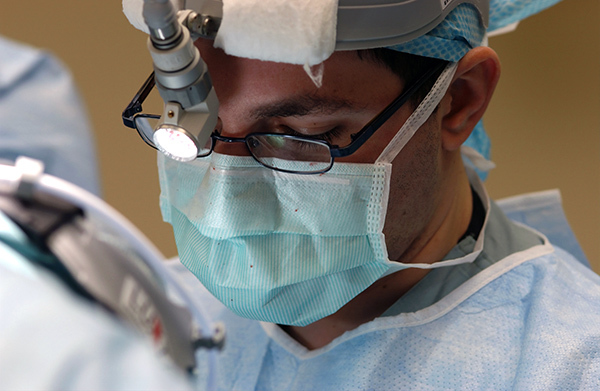
Hemorrhoid Surgery 101 - Learn the Basics of this Common Procedure
Are you suffering from painful, persistent hemorrhoids and wondering if surgery is the right treatment option for you? You're not alone. Hemorrhoid surgery has become increasingly popular over the years as a way to alleviate uncomfortable symptoms associated with this common condition. In this blog post, we'll go over what causes hemorrhoids, how they can be treated, and the basics of hemorrhoid surgery so that you can make an informed decision about your specific medical needs. Don't suffer in silence anymore — learn all about hemorrhoid surgery today!
What are Hemorrhoids, and why is Surgery Needed
Hemorrhoids are swollen veins that occur in the lowest part of the rectum and anus. These protrusions can be uncomfortable and painful and result in a range of hemorrhoid symptoms that are hard to ignore. Symptoms include itching, bleeding during bowel movements, and discomfort while sitting. Sometimes, surgery is needed to treat hemorrhoids that are severe or do not respond to other treatments. In addition to reducing symptoms, surgery can also reduce the risk of complications such as anemia caused by chronic bleeding. Fortunately, advances in medical technology have made hemorrhoid surgery more effective, less invasive, and less painful in recent years. If you are experiencing hemorrhoid symptoms, consult a doctor to determine whether surgery is necessary for you.
Types of Procedures Used to Treat Hemorrhoids
. One common procedure is a hemorrhoidectomy, which involves removing the hemorrhoids through surgery. Another option is a less invasive procedure known as rubber band ligation, which involves placing a small rubber band around the base of the hemorrhoid to cut off its blood supply and cause it to shrink and fall off. Other options include laser therapy and sclerotherapy. Depending on the severity of your symptoms and the recommendation of your healthcare provider, one of these procedures may be the best course of action for treating your hemorrhoids.
Preparation and Recovery for Hemorrhoid Surgery
Hemorrhoids can cause a great deal of discomfort, and in severe cases, surgery may be necessary to alleviate the symptoms. The thought of undergoing hemorrhoid surgery may be daunting, but proper preparation beforehand and a good recovery plan can help to ensure that the process goes as smoothly as possible. Preparation may involve lifestyle changes such as a high-fiber diet and exercise routine, while recovery may involve taking time off work and avoiding strenuous activities. It's also important to follow your doctor's instructions regarding pain management and medication to prevent complications. By taking the time to prepare and recover properly, you can increase your chances of a successful hemorrhoid surgery outcome.
Benefits, Risks, and Potential Complications of Hemorrhoid Surgery
Hemorrhoids can be uncomfortable and painful and can often interfere with a person's quality of life. Fortunately, there are a variety of treatments available to help alleviate symptoms, and surgery is one of them. While surgery can be an effective way to permanently remove hemorrhoids, it is important to understand the potential benefits, risks, and complications before making a decision. Some of the potential benefits of hemorrhoid surgery include improved quality of life, reduced pain and discomfort, and shorter recovery time. However, surgery also comes with certain risks and complications, such as infection, bleeding, or recurrence of hemorrhoids. It is important to discuss all of the options with your healthcare provider to make an informed decision about the best treatment plan for you.
Alternatives to Surgery for Treating Hemorrhoids
Hemorrhoids can be a painful and uncomfortable condition, but surgery isn't always the best option for everyone. Luckily, there are a number of alternative treatments available for those looking for a less invasive approach. One such option is rubber band ligation, a procedure that cuts off blood flow to the hemorrhoid, causing it to shrink and fall off on its own. Other alternatives include dietary changes, such as increasing fiber intake and drinking more water, and topical creams and ointments to help alleviate the symptoms of hemorrhoids. It's important to talk to your doctor about your options and determine the best course of treatment for your specific case. Remember, there's no one-size-fits-all solution when it comes to hemorrhoid treatment, so don't be afraid to explore your options and take the time to find what works best for you.
Questions to Ask Your Doctor About Hemorrhoid Surgery
If you're considering hemorrhoid surgery, it's important to come prepared with a list of questions to ask your doctor. While hemorrhoid symptoms can be uncomfortable and embarrassing, surgery may offer relief and improve your quality of life. It's important to discuss with your doctor the different types of surgery available, such as traditional open surgery or minimally invasive procedures, as well as the risks and benefits associated with each option. Additionally, you'll want to ask about postoperative care and what to expect during recovery. By having an open and honest discussion with your doctor, you can make informed decisions about your health and feel more confident about undergoing hemorrhoid surgery.
